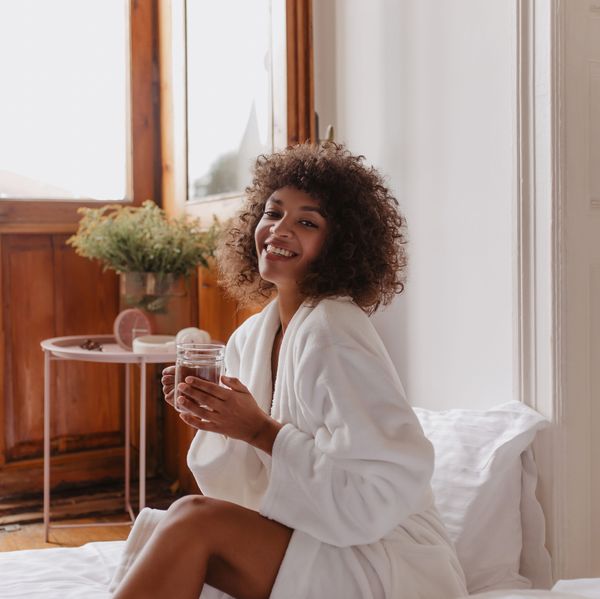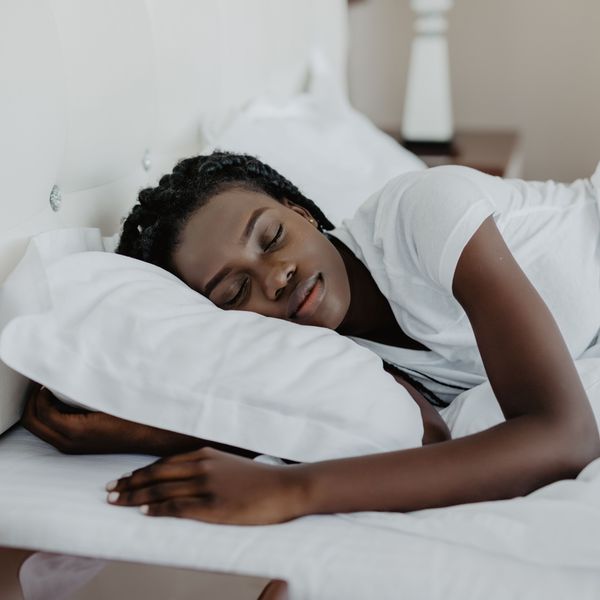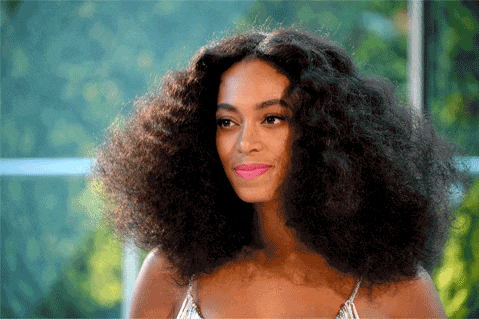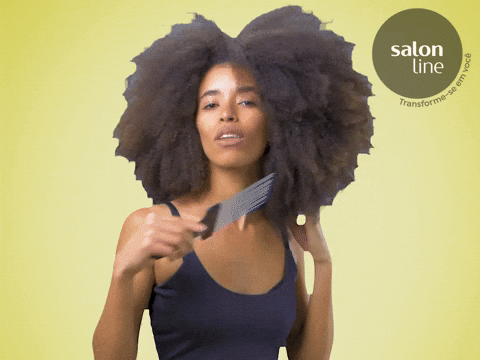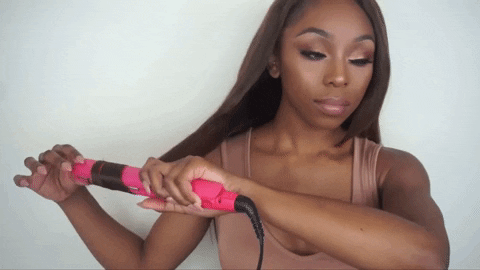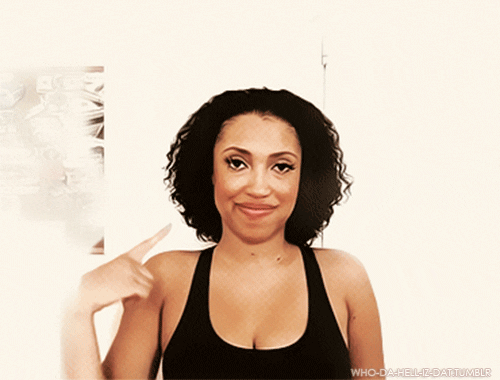CEO Cannabis Connoisseur Wanda James Reveals How She Planted The First Seeds Of Success

In The Smoking Gun, we talk to CEO cannabis connoisseurs about how they planted the very first seeds of success in their careers, how they balance their day-to-day life, and how they are using their work to make the marijuana market more inclusive to people of color.
Society tells us there are two types of people in this world: polished professionals who are CEOs of wildly successful businesses and people who like to get high AF. But Simply Pure CEO Wanda James is living proof that you, too, can be a woman who does both, sis.

As a veteran, former member of President Obama's Finance Committee, previous campaign manager for congressman-turned-Colorado Governor, Jared Polis, and full-time business owner, there's no doubt that Colorado dispensary owner Wanda James has a lot on her plate. But this trailblazer is on a mission to ensure that every single person in our community has the opportunity to eat. After her brother was indicted and incarcerated for a minor weed offense at only 18 years old, Wanda discovered a discrepancy in the system that was obviously disproportionate to people of color and decided to become the agent of change that she wanted to see in the cannabis industry.
In 2009, Wanda and her husband, restaurateur Scott Durrah, became the first Black dispensary owners in Colorado, and since have used their platform to advocate for the abolition of mass incarceration and create opportunities for people of color in the cannabis industry. Wanda told xoNecole exclusively, "Along the way, we found out that cannabis is indeed, truly medicinal. That we can save people; we could help vets with PTSD...we found out that we can help babies with epilepsy and grownups with MS. So all of a sudden we've gone from a recreational plant that the side effects make you giggle and eat cheesecake, and we found that this amazing plant also heals your body."
I had a chance to sit down, roll up, and blaze one with this trailblazer, who spilled all the tea on how she got started, her love of the plant, and what she's doing to change the landscape for people of color in the cannabis industry. Here's what I learned:
What is your first memory of being introduced to cannabis?
I was 16, and I was hanging out with a really good friend of mine. He was giving me a ride home and he pulled out a joint and he's like, "You ready to try this yet?" And I was like, "You know what? Alright, I'll try it."
At first, I was scared because I was expecting to be stoned, [like] walls were gonna move and I was going to see pink elephants and my mind was going to be blown, and I was going to be stoned. And what I found was I was delightfully elevated. My thoughts became more focused because there were so many different things that I was thinking and feeling and I enjoyed it.
What does your day to day look like?
I want to be fair. I want people to know that I work my ass off and I need young people and I need women to know that, y'all, what everybody thinks they see, it's like the iceberg, right? That's 20% of what I do. The 80% of what I do is that underside of the iceberg. I am up every single day at 4:30 AM, Saturday and Sunday included. I don't sleep in; I can't sleep in. The minute I get up, I turn on my computer. I answer all of my emails from the last 10 hours or so. During that time, it's quiet. I can think and I can get my thoughts out. So I return all my emails. I then do all of my accounting. I take a shower and I'm in the office by 9:30, 10:00 every day.
I usually leave the office at about 5:30 or 6:00 every night, or maybe a little earlier and maybe Kali, my assistant, and I will go and end the day and smoke a joint and she'll go off and do her things. I'll get home here at about 6:30 or so. Scott and I will have dinner together. Maybe catch a few movies or whatever else. And then I'm usually in bed at about 11:00, 11:30 every day.
Has working in the cannabis industry always been a goal for you?
No, and it's funny because you're the second young person that's asked me, has this always been a goal? You have to remember, up until 2009 [when] I was 44 years old, the goal of selling weed would have made me a drug dealer, not an entrepreneur. See the difference?

Photo by Joe Mahoney
"Up until 2009 [when] I was 44 years old, the goal of selling weed would have made me a drug dealer, not an entrepreneur. See the difference?"
Yes! There is definitely a difference!
And this is what's really inspiring, you may not even know what your career is yet because your career may not have even been invented yet. I did not know until 2009 that the possibility of this being a business would even be a thing. I wasn't really sure what it was going to be, but I didn't think it was going to be that.
What inspired you to join the market in the first place?
Because of my 25 years with three senators on speed dial, with a governor on speed dial, with Congress on speed dial, we felt relatively confident that we were going to be able to enter this industry without the fear of going to jail, which was the point of entering the industry. Because up until then, Black people had been going to jail. When we started in 2009, the goal was social justice. $260 worth of the street value of bad cannabis cost my brother 10 years of his life. He never saw an attorney, which, when he told me that I didn't understand until I saw When They See Us.
He [later] tested positive on his piss test and they immediately put an 18-year-old in a privatized prison, where for the next four and a half years, my brother picked cotton every day. He had to pick a hundred pounds of cotton a day in Texas to purchase his freedom. My brother became a slave. A whole bunch of people's brothers became a slave because that became an American-Corporate balance. My brother picked a hundred pounds of cotton every day for four years. How much does the cotton industry owe my family?
For almost seven years, we were the only ones in Colorado and that's a shame. And this is the racism that we've got to be able to fight. I've often said that my father's generation fought to be able to ride the bus, right? To get on the bus and sit where they wanted to on the bus. Our challenge is how do we own the bus? How do we own the bus line, right? So, it's one thing to decriminalize, which is great. We should not be going to jail for this. But now let's take it a step further.
What has your extensive professional career working with Presidents and Fortune 500 Companies taught you about the work you’re doing now?
Ironically, everything that I have done in my life up until this point has prepared me for this point. When you're going through your life and like, "Why am I here? Why am I doing this?" When I look back on it, everything that I have done has trained me for this.
After 25 years in politics, I know how to talk to US senators. I know how to talk to governors. Hell, I know how to talk to presidents, right? So everything that I have done in my life has prepared me for this one moment in time. Even my love of the plant, you know? I'm not just the business owner, I'm a client.

Courtesy of Wanda James
"After 25 years in politics, I know how to talk to US senators. I know how to talk to governors. Hell, I know how to talk to presidents, right? So everything that I have done in my life has prepared me for this one moment in time. Even my love of the plant, you know? I'm not just the business owner, I'm a client."
I love that! And I saw in a previous interview you said that at your house, there’s weed in the wine, food, and beer and I’ve never aligned with someone so closely in my life. In your own words, what are your views on medical and recreational cannabis usage?
The only time that I didn't smoke was the five years that I was in the military because the penalty was too high for a military officer in the late 80s, early 90s. If you were caught with illegal drugs, you went directly to jail, period. No conversation, no nothing. You just went to jail. So I wasn't going to chance that.
If you go to The Officer's Club, you could get top-shelf alcohol for 75 cents a drink. If you could drink all night and get up in the morning and put on your uniform, you were doing it right. And during that time of my life, I mean that was probably the time that I felt the least like myself. I was in my twenties, so hangovers don't last long and you're able to deal with your day, but [you're] nowhere near as sharp as you could be, nowhere near as engaged as you could be and it was because of alcohol. So it's been interesting to me when I look at alcohol versus cannabis. Alcohol loses all the time in my book.
What is the biggest misconception you think people have about marijuana products?
I think that the biggest misconception about cannabis is that people want to put it in the drug column. For me, when I think of drugs, I think of something that your body doesn't necessarily want or doesn't want, may need but doesn't want. I think that cannabis is something that works with our bodies. It works in total alignment with our bodies.
I just don't see this as a negative at all. I run three businesses, I'm up at 4:30 every morning, my husband and I are in great shape; we run, we do all kinds of athletic things. Neither one of us have any "ailments" to speak of; we don't have high blood pressure, we don't have diabetes and I'm not saying that's because of cannabis, but I'm also not saying it's not because of cannabis.
What advice do you have for women like me who want to enter the cannabis industry but may be intimidated by the barriers to entry?
Don't be intimidated, first and foremost. Take the word "intimidated" out of your vocabulary. And let me say, we all feel nervous sometimes. We all feel anxiety sometimes. Every time I go into a meeting, I feel nervous. I get that weird feeling in my stomach. I'm like, "Oh, here we go." But you know what though? That's life. That's not a negative feeling. That's a positive feeling. That's your adrenaline getting going. Adrenaline is getting released in your body so that your brain gets sharp.
We need to learn to love that feeling because that's the feeling of excitement and things happening. Yes, it's scary. Absolutely. It's scary because you know what? It might not work, but so what? So what? Because it might work.
"Every time I go into a meeting, I feel nervous. I get that weird feeling in my stomach. I'm like, "Oh, here we go." But you know what though? That's life. That's not a negative feeling. That's a positive feeling. That's your adrenaline getting going. Adrenaline is getting released in your body so that your brain gets sharp."
What footprint do you plan to leave on the cannabis industry when you retire?
I want this industry to be the catalyst for ending slave labor in America. Because when we talk about mass incarceration, we are talking about [in cannabis-related arrests alone], 800,000 people a year arrested for simple possession before legalization started. A year. Not 800,000 people total; a year. So I want this industry to be equitable. I want it to shine a light on what racism has done to destroy the black and brown community.
And then I want to see cannabis be the means of fixing that issue. Okay. In other words, I want to see our families and our communities benefit long-term from cannabis in the exact same way that Kennedys benefited from Irish whiskey when it was illegal. I want to see America pay its debt. And it is a debt and they do owe us, and I think that cannabis, that this industry can be the vehicle in order to make that happen.
Make sure to stop by Simply Pure the next time you're in Colorado and keep up with Wanda's adventures on Instagram @WandaLJames!
*Some responses have been edited and condensed for clarity.
Featured image courtesy of Wanda James.
- Wanda James Is The First African American Dispensary Owner ... ›
- The Rise of a Colorado Cannabis Entrepreneur: Wanda James ... ›
- A Cannabis Pioneer's 'Lonely' Place in the Industry | The Takeaway ... ›
- Best Cannabis Dispensary | Meet Simply Pure's Leadership Team ›
- Wanda James - CEO - Simply Pure Dispensary | LinkedIn ›
- Welcome to Simply Pure Cannabis Dispensary and CBD Brand ›
- This Weed Warrior Is Breaking Barriers In The Marijuana Movement ›
- Wanda L. James (@WandaLJames) | Twitter ›
- Wanda James - Wikipedia ›
- Dispensary Owner and Marijuana Activist Wanda James Talks ... ›
This Is How To Keep 'Holiday Season Stress' From Infecting Your Relationship
Hmph. Maybe it’s just me, but it seems like there is something really weird happening in the fall season air (because winter doesn’t officially begin until December 21) that cuddle season is in full swing while break-up season is as well. In fact, did you know that break-ups are so popular during the holiday season that December 11 is deemed Break-Up Day?
The reasons why relationships shift around this time vary; however, I did both roll my eyes and chuckle when I read that a very popular one is because it’s an easy way to get out of getting one’s significant other a Christmas present. SMDH.
Anyway, I personally think that the less shallow folks out here may contemplate calling things “quits” or they at least distance themselves a bit from their partner (and what I’m referring to is serious relationships) due to all of the stress and strain that oftentimes comes with the holidays whether it be financial, familial, due to their tight schedules or something else.
Listen, I would hate for you and your man to miss the fun and happiness of experiencing this time of year, all because you are so overwhelmed or irritated that you can’t really enjoy it. That’s why I have a few practical tips for how to avoid allowing the typical holiday season stress from INFECTING your relationship.
Manage Your Expectations
 Giphy
GiphyUnmanaged expectations. If there is a main reason why the holiday season tends to be so stress-filled for so many people, I’d bet good money that this is the cause. And when you’re in a long-term relationship, expectations can manifest themselves in all sorts of cryptic and/or unexpected ways. You might have relatives who assume that you are going to be with them for Thanksgiving or Christmas when you have other plans in mind. You might be thinking that you are going to spend one amount for presents while your man is thinking something totally different. When it comes to scheduling, your signals may be crossed.
And you know what? To all of these scenarios, this is where clear and consistent communication come in. Don’t assume anything. Don’t dictate anything either. From now until New Year’s, mutually decide to check in once a week, just to make sure that you are both on the same page as it relates to the holidays and what you both are thinking will come along with it. The less blindsided you both feel, the less stressed out you will be. Trust me on this.
Set (and Keep) a Budget
 Giphy
GiphyOkay, so I read that last year, 36 percent of Americans incurred some type of holiday-related debt. Hmph. Last year, there was still some sense of normalcy in this country, chile, so I can only imagine what finances are gonna look like over the next several weeks. That said, since I don’t know a lot of people who don’t find being broke stressful, make sure that you and your bae set a budget and then stick to it this year — no ifs, ands or buts.
Because really, y’all — it doesn’t make sense to deplete savings and/or max out credit cards for a few days of giggles only to be damn near losing your mind because you don’t know how to make ends meet come Dr. Martin Luther King, Jr. Day.
And by the way, this tip doesn’t just speak to things like food and gifts; I also mean travel. If it doesn’t make a ton of sense (or cents) to be all over the place this year — DON’T BE.
Keep Matthew 5:37 at the Forefront
 Giphy
GiphyIf off the top of your head, you don’t know what Matthew 5:37 says, no worries, here ya go: “But let your ‘Yes’ be ‘Yes,’ and your ‘No,’ ‘No.’ For whatever is more than these is from the evil one.” That verse right there? Oh, it’s a boundaries lifesaver! I say that because do you see “maybe” or “I’ll think about it” in there? Nope. LOL. It says that you should tell people “yes” or “no” and leave it at that — and that complements Anne Lamott’s quote, “’No’ is a complete sentence” impeccably well. Yeah, you’ve got to remember that anything beyond a yes or no to a request is privileged information; you don’t owe anyone details or an explanation.
Besides, if you are really honest with yourself, when someone asks you something and you give a “Umm, let me think about it” kind of reply, more times than not, you already know what your answer is going to be — so why not let you both off of the hook? Give your response. Commit to that. And let everyone (including yourself) get on with their lives and schedules.
I promise you that when it comes to those holiday parties, you are pissing more folks off by not RSVP’ing or doing so and not showing up than just saying, “Thank you but not this year” off the rip.
Remember That Your Personal Space Is Privilege Not a Right
 Giphy
GiphyA friend of mine recently bought a new house and invited me over to come see it. He’s a single man with no children, so as I was taking in all of the space that he had, especially as I walked through his finished basement, I joked about relatives coming to live with him. “Hell no” and “absolutely not” were pretty much his immediate responses as he went on to say that some folks even had the nerve to be offended when he told them that he had no intentions on taking DNA in.
Ain’t it wild how people think that your stuff is their right? And yes, that brings me to my next point. Your home is your sanctuary space. If you want to host folks this year — cool. If not, ALSO COOL. Please don’t let folks (family included) guilt you into how they want you to act or even into what they would do if the shoe was on the other foot. You are not them — and as one of my favorite quotes states, “If two people were exactly alike, one of them would be unnecessary.” (A man by the name Larry Dixon said that.)
Hell, my friends? They know that I am good for sending them random things that they need or even want all throughout the year. Coming over to hang out at my pace, though. Uh-uh. Chalk it up to being a card-carrying member of the ambivert club yet I like keeping my living space personal — and I sleep like a baby, each and every night, for feeling that way.
Always remember that your space, your time, your resources, your energy and shoot, yourself period (including your relationship), are all things that are your own. You get to choose how, when and why you want to share them. The holiday season is certainly no exception.
Cultivate Some “You Two Only” Traditions
 Giphy
GiphyIt’s not uncommon for some couples to hit me up after the holiday season to “detox.” Sometimes it’s due to the financial drama (and sometimes trauma) that they experienced. Sometimes it’s because they allowed their relatives (especially in-laws) to get more into their personal business than they should’ve. More than anything, though, it tends to be because they didn’t get enough quality time together and so ended up feeling “disconnected.”
Please don’t let that happen. Listen, I’m not even a holidays kind of woman and yet, I will absolutely sit myself down with some hot chocolate and chocolate chip cookies to enjoy a Hallmark holiday film or two. Aside from the fact that most of them are lighthearted and sweet, I also like that they usually focus on couples loving on each other amidst all of the holiday beauty and ambiance — which is something that all couples should set aside some time to do.
Maybe it’s a vacation. Maybe it’s a staycation. Or maybe it’s my personal favorite, A SEXCATION. Whether it’s for a few days, the weekend or even overnight — don’t you let the holidays go by without setting aside time for you and your man to celebrate one another. Don’t you dare (check out “Are You Ready To Have Some Very Merry 'Christmas Sex'?”).
GET. SOME. REST.
 Giphy
GiphyI once read that 8 out of 10 people get stressed out over the holidays and 3 out of 10 lose sleep during to it — and when you’re stress-filled and sleep-deprived, that can absolutely lead to hypersensitivity, making mountains out of molehills and even not being in the mood for sex.
Your relationship can’t afford to go through any of this, so definitely make sure to prioritize rest. I don’t care how unrealistic it might seem during this time, sleep should never be seen as a luxury; it will always and forever be a great necessity.
That said, try to get no less than six hours of shut-eye in (check out “6 Fascinating Ways Sex And Sleep Definitely Go Hand In Hand”) and even ask your bae to take a nap with you sometimes (check out “Wanna Have Some Next-Level Sex? Take A Nap, Sis.”). Not only will sleep help to restore your mind, body and spirit but, when it’s with your partner, it’s an act of intimacy that can make you both feel super connected, even in the midst of what might feel like chaos.
___
Holiday season stress is real. Still, never give it the permission or power to throw your relationship off. Put you and your man first and let the holidays be what they are gonna be, chile.
Let’s make things inbox official! Sign up for the xoNecole newsletter for love, wellness, career, and exclusive content delivered straight to your inbox.
Featured image by Shutterstock
It’s probably been over the past 2-3 years that I’ve become hyper-focused when it comes to applying certain chemical exfoliants known as acids to my skin. Personally, I’ve come to really appreciate ones like mandelic acid and hyaluronic acid because they have a way of softening my skin, brightening it up and really evening out my complexion overall.
In fact, on my skin, they have been so effective that they have caused me to wonder what would happen if I applied some of them to my hair too — and boy, was it an experiment that paid off big time!
If, while on your continual journey to get the best out of your own tresses, you’d like to learn how to get them healthier than it’s ever been, I’ve got seven acids that are typically known for skin use that can be just as beneficial to your hair as well.
1. Salicylic Acid
When it comes to your skin, salicylic acid is beta-hydroxy acid that is great for your skin if you’re looking for something that will exfoliate it, clear out your pores and dissolve dead skin cells. In fact, this is why it’s an acid that is quite popular when it comes to treating acne.
Your hair will enjoy salicylic acid because, if you’re looking to remove product build-up, you want to soothe an itchy or irritated scalp or you’ve got some dandruff flakes that are totally driving you up the wall, salicylic acid has the ability to treat all of this. Either purchasing a shampoo that contains this ingredient or adding it to your favorite scalp scrub is probably the most effective way to get the most out of it.
Just make sure that if your scalp is sensitive or dry that you approach with caution. In these instances, it could end up irritating your scalp more than helping it out, so use a very little bit in the beginning to make sure that it vibes with you.
2. Lactic Acid
Lactic acid is an alpha hydroxy acid that can help to even out your skin tone as well as slow down the signs of aging. The properties in it help to do this by reducing hyperpigmentation and boosting collagen production in your skin as well as keeping it hydrated.
Why is it great for your locks? For one thing, lactic acid is considered to be a humectant. This means that it pulls water from the air so that your hair is able to remain moisturized.
Another thing that makes it a winner is the fact that lactic acid breaks down dead skin cells on your scalp (so that your hair follicles are able to flourish), it can help to soften and detangle your hair (making it a helpful addition on your wash days) and it also helps to protect your tresses from heat styling tools and UV damage. Applying a hair rinse that’s made up of part lactic acid and part water can work wonderfully (so long as you apply it once a month, tops; more than that might be too “intense” for your hair strands).
3. Glycolic Acid
Glycolic acid is a water-soluble alpha hydroxy acid that is actually made from sugar. Your skin will adore it because it smooths the appearance of fine lines and wrinkles, improves the texture of your skin, gently exfoliates, clears your pores and brightens up your complexion overall.
The reasons why you should consider this acid for your hair is because it helps to keep your scalp youthful (and yes, there is such a thing; check out “Your Scalp Ages Six Times Faster Than Your Face. Why It Matters.”), removes excess sebum (that could be clogging up your hair follicles) and it helps to keep your hair moisturized. Your best bet here is to make it a part of your pre-shampooing ritual.
4. Succinic Acid
Succinic acid is an acid that is made from sugar cane and contains antimicrobial and anti-inflammatory properties. Although it doesn’t exactly exfoliate (like many of these other acids do), it can still be beneficial to your skin when it comes to reducing the kind of irritation that is associated with eczema, decreasing the bacteria that leads to breakouts and keeping your skin pretty hydrated.
As far as your hair goes, this is an acid that is worth trying out because it helps to balance the sebum that is on your scalp, remove dead skin and product build-up that can irritate your scalp and clog your hair follicles and, succinic acid is also beneficial when it comes to reducing dandruff and helping to prevent hair loss. Most people tend to apply this as a serum.
5. Hyaluronic Acid
I’ve officially sung the praises of hyaluronic acid on this platform before. One example is via the article, “Why Your Skin, Hair, And Nails Need Hyaluronic Acid Like...Yesterday.” On the skin tip, hyaluronic acid is great because it deeply hydrates your skin, contains anti-aging properties and can even bring relief to vaginal (including vulvar) dryness.
Your hair will adore this particular acid because it aids moisture to it (including your hair follicles), will help to improve your hair’s texture and it also soothes scalp dryness, nurtures the cuticles of your tresses and decreases frizz. Using a serum rich in this acid as a pre-poo or as a leave-in conditioner is recommended.
6. Azelaic Acid
If you’ve never heard of azelaic acid before, this is your lucky day. It’s a dicarboxylic acid that, when it comes to skincare (and hair care) products, is usually synthetic. Anyway, if you are looking for a way to reduce inflammation, even skin tone after a breakout or if you want to use an exfoliant that will improve the texture of your skin overtime, you might want to give this acid a shot.
This one makes the list as far as your hair is concerned because, if achieving more inches is your current focus, azelaic acid might come in handy. That’s because it is able to strengthen your hair, thicken your strands and also stimulate hair growth from within your hair follicles.
7. Glutamic Acid
Glutamic acid is actually a type of amino acid. Skin-wise, it’s great for deeply hydrating your skin as well as protecting it from pollutants and damaging UV rays. Also, if you’re looking for an acid that treats skin dryness or “tightness,” this could be the answer to your prayers.
Since glutamic acid is also considered to be a humectant, it’s another acid that can moisturize your hair. As a result, it can decrease breakage while helping your hair to feel smooth and look shiny.
BONUS: Amino Acids
Speaking of amino acids and hair, please try to keep some amino acids in your diet at all times. The reason why is because, since your hair is made up of mostly protein (keratin, to be exact), amino acids are pretty darn effective when it comes to helping you to maintain the overall health and well-being of your hair.
Ones to prioritize include proline (it boosts collagen so that your hair strands can maintain flexibility); arginine (it increases blood flow to your hair follicles so that they can receive the nutrients that they need); cysteine (it helps to keep your hair follicles healthy); alanine (it helps your system to produce more collagen), and isoleucine (it strengthens the tissues that help to make up your hair strands). All of these are available in supplement form or you can use Google to see which foods contain them.
___
Although it might initially seem odd to apply acid to your hair, as you can see, certain ones will work miracles for it. So, test them out to see which one tickles your fancy.
Hell, since they work for your skin as well — it’s a two-for-one deal that is worth every penny!
Let’s make things inbox official! Sign up for the xoNecole newsletter for love, wellness, career, and exclusive content delivered straight to your inbox.
Featured image by Shutterstock



